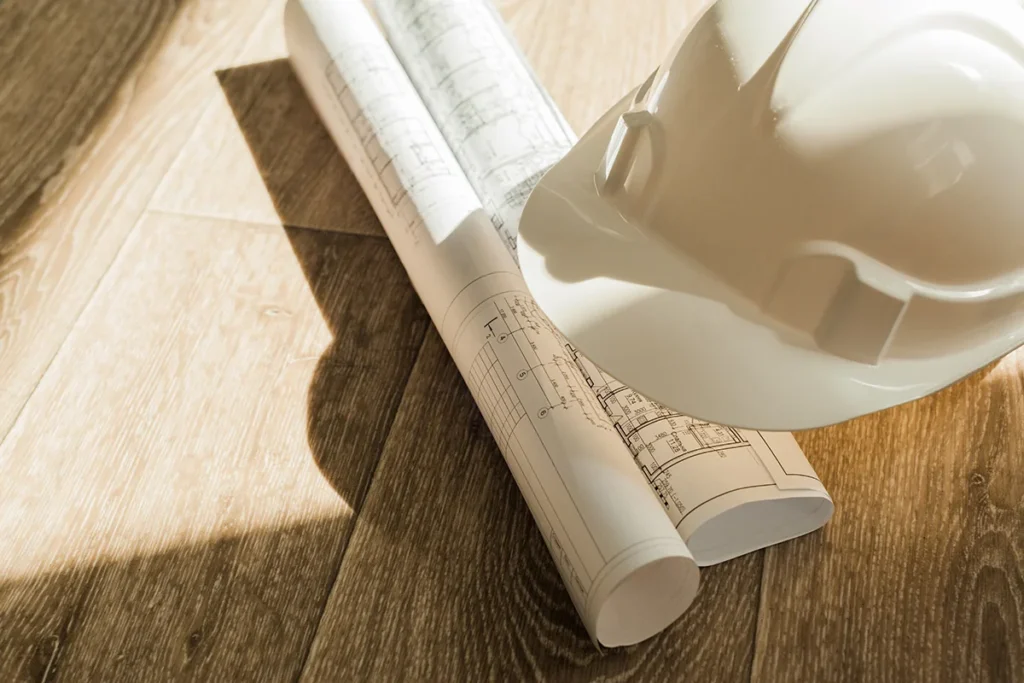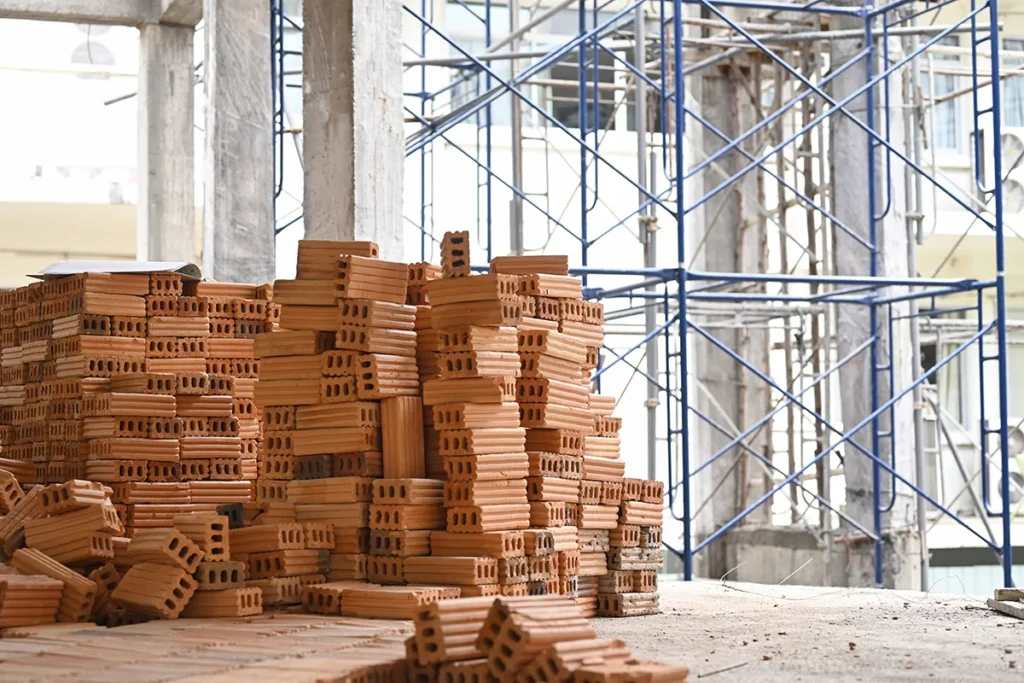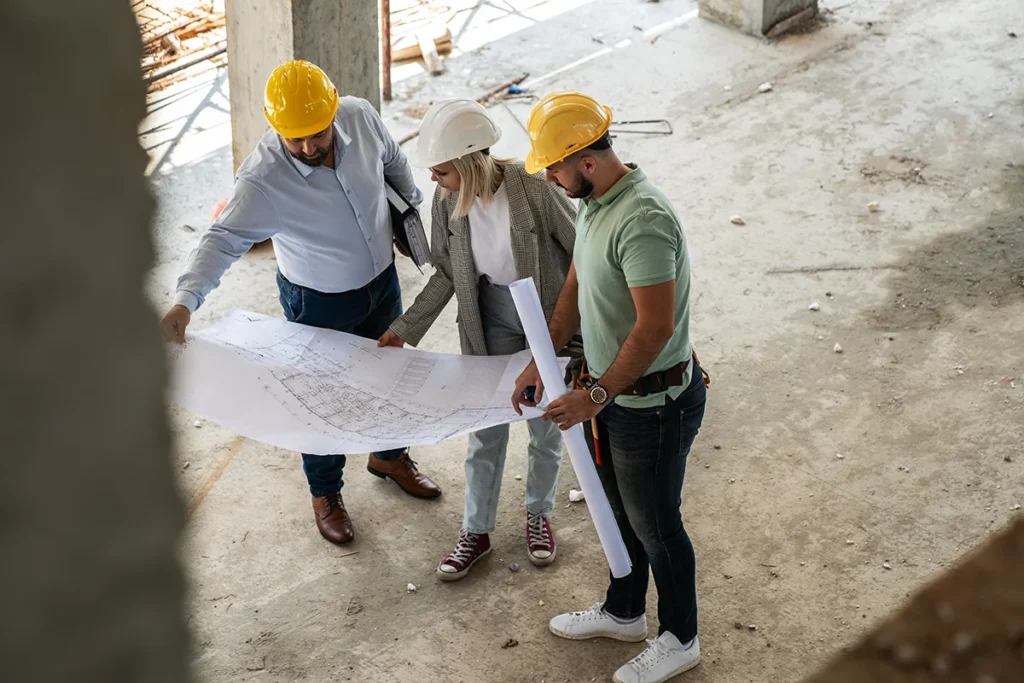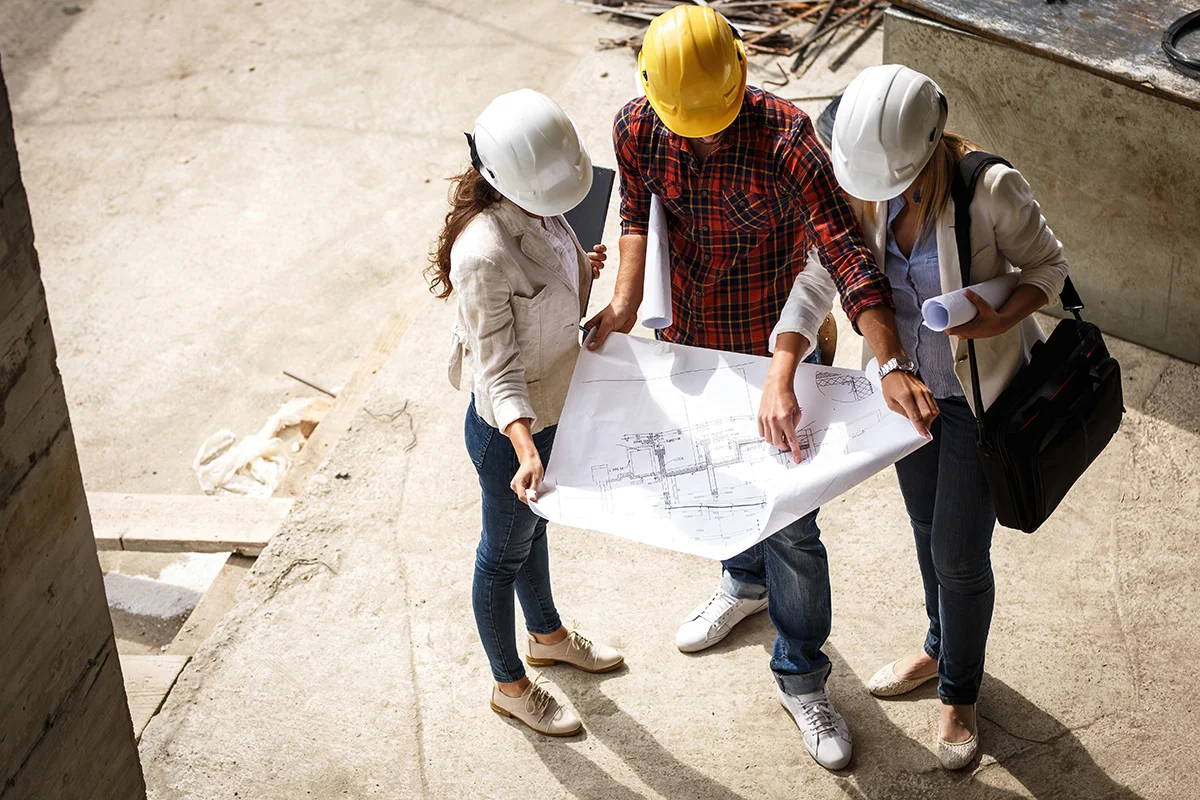What is a Commercial General Contractor?
November 1, 2024 Commercial Construction, General ContractorThis blog explores what a commercial general contractor is, their unique responsibilities, and how they can help maximize the long-term success of your construction project.

What Is a General Contractor?
A general contractor (GC) is essential for a successful construction project. From planning and budgeting to subcontractor supervision, general contractors manage the entire project from start to finish, ensuring streamlined construction and optimal results.
A general contractor may oversee both residential and commercial construction projects, but some contractors specialize in either industry. A commercial general contractor has specific experience in commercial construction for businesses. Their goal is to construct a high-quality, functional space that remains a valuable asset for your business long after closeout.
What Does a Commercial General Contractor Do?
During a construction project, commercial general contractors skillfully balance a variety of responsibilities. Below is an overview of these key commitments.
Pre-Construction Planning

In design-build construction, a commercial contractor oversees the pre-construction planning process to develop a comprehensive framework for the project. Through close collaboration with architects and engineers, they employ techniques like value engineering to establish strategic project timelines, budgets, and design plans
Permit Acquisition and Approvals
After design finalization, a commercial general contractor will submit the project plans for any necessary permits and approvals. Proper permitting ensures compliance with all building codes and regulations, which is critical for maintaining safety and quality standards and preventing potential legal delays down the road.
A commercial contractor’s unique expertise is crucial during this step because their guidance ensures full compliance, enabling the project to progress with minimal disruptions.
Procuring Materials and Equipment

A commercial GC is responsible for coordinating the procurement of all materials and equipment necessary for the project’s completion. This includes construction materials like lumber, machinery like excavators, or safety gear for subcontractors. An experienced commercial contractor may also have lasting relationships with suppliers, allowing them to negotiate and obtain favorable rates.
A GC’s unique insight is highly beneficial during material procurement. Using past experience and a value-first mindset, they prioritize obtaining the highest quality materials at the lowest possible cost.
Hiring and Managing Subcontractors
Subcontractors are the companies or employees that a GC hires to complete specialized tasks. This can include framing, roofing, carpentry, concrete pouring, electrical work, and much more.
Commercial general contractors are responsible for hiring and managing all subcontractors for a construction project. This includes:
- Vetting potential hires and verifying any necessary licenses or insurance
- Negotiating contracts
- Overseeing subcontractor work
- Coordinating between subcontractors and arranging schedules
- Resolving potential disputes
Construction Oversight

During the construction phase, a commercial contractor will oversee the entire process and ensure work is completed in adherence to regulations, quality standards, timelines, and project budget. They will supervise subcontractors, coordinate work schedules, and manage material flow to minimize delays.
A commercial GC will also monitor the project’s progress and keep all stakeholders updated with progress reports. They will address any unexpected challenges or changes that arise during construction to keep everything running smoothly.
Safety and Compliance
An experienced commercial contractor understands that safety is non-negotiable. They will uphold a strong commitment to proper safety protocols throughout every step of the project. This includes:
- Implementing proper safety measures during construction
- Supplying subcontractors with any needed safety gear
- Conducting thorough safety training for all workers
By managing safety and compliance, commercial general contractors help reduce potential delays and keep the project on track for success.
Project Closeout

A commercial contractor’s job isn’t over when the workers leave the site. Even after construction ends, they must complete many tasks to close out the project.
Post-construction, a commercial GC will arrange meticulous final inspections to ensure the building meets all specifications, regulations, and quality standards. They will also see to it that all subcontractors have been paid for their work. Once a GC is certain that everything is taken care of, they will compile all necessary closeout documents and hand the project over to the client.
Partner With an Experienced Commercial General Contractor
Commercial general contractors manage the construction of commercial buildings from start to finish. They coordinate every detail of the project to ensure it is completed on time, within budget, and to the highest quality standards.
FDC has been a leading commercial contractor for over 40 years, overseeing countless construction projects across various industries. From winemaking and hospitality to self-storage and more, our team has the unique expertise needed to transform your vision into an asset for your business.
Ready to bring your ideas to life? Contact us online today or call (707)-523-1722 to speak with a member of our team.
